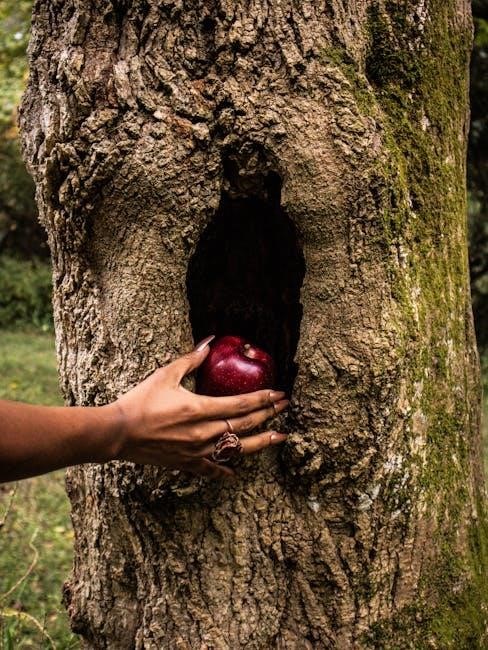things fall apart free pdf
First published in 1959, Things Fall Apart is Chinua Achebe’s seminal novel, chronicling the rise and fall of Okonkwo in colonial Nigeria. It remains a cornerstone of African literature, exploring themes of cultural identity, masculinity, and colonial disruption. The novel is the first in Achebe’s African Trilogy, followed by No Longer at Ease and Arrow of God. Its global acclaim has led to over 8 million copies sold and translations into 45 languages, cementing its status as a modern classic.
The story unfolds in the fictional village of Umuofia, offering a vivid portrayal of Igbo traditions and the devastating impact of British colonialism. Achebe’s masterpiece is celebrated for its nuanced exploration of cultural conflict and its challenge to Eurocentric narratives about Africa. Readers seeking the novel as a free PDF can explore platforms like PDF Drive or Google Books, though they should prioritize legal and ethical downloading practices to support authors and publishers.
1.1 Background and Publication History
Things Fall Apart, written by Chinua Achebe, was first published in 1959 and is considered one of the first African novels in English to achieve global recognition. The book was a groundbreaking work that challenged Eurocentric portrayals of Africa and provided a powerful narrative of Igbo culture and the impact of colonialism. Published by Heinemann, it quickly gained acclaim for its vivid storytelling and profound themes. The novel’s success led to its inclusion in the African Writers Series, further cementing its influence. Today, it is widely studied and admired, with over 8 million copies sold worldwide. The availability of Things Fall Apart as a free PDF has made it even more accessible, allowing readers to explore Achebe’s seminal work conveniently, though users should always prioritize legal and ethical downloading practices.
1.2 The Novel’s Significance in African Literature
Things Fall Apart holds a pivotal place in African literature, offering a counter-narrative to colonial perspectives that often depicted African societies as primitive. Chinua Achebe’s masterpiece presents a rich portrayal of Igbo culture, traditions, and the resilience of its people. The novel is celebrated for its nuanced exploration of masculinity, cultural identity, and the disruptive forces of colonialism. Its publication in 1959 marked a turning point, as it challenged stereotypes and provided a voice for African experiences. The availability of Things Fall Apart as a free PDF has further amplified its reach, enabling global readers to engage with its profound themes. This accessibility has made it a cornerstone in educational curricula and a key text in postcolonial studies, ensuring its enduring relevance and impact on literary discourse.

Key Themes in “Things Fall Apart”
The novel explores themes of masculinity, cultural identity, and colonial disruption, delving into the complexities of tradition versus change and the pervasive impact of fear and weakness on individual and societal levels.
2.1 The Struggle for Masculinity and Identity
Okonkwo’s journey in Things Fall Apart revolves around his relentless pursuit of masculinity, shaped by the fear of emulating his father, Unoka, whose effeminacy and financial irresponsibility bring shame to their family. From a young age, Okonkwo adopts a rigid definition of manhood, emphasizing strength, courage, and dominance. His achievements as a wrestler and farmer earn him respect in Umuofia, yet this facade of masculinity often masks his vulnerabilities. The novel highlights how societal expectations of gender roles constrain individuals, forcing them into narrow identities. Okonkwo’s inability to express emotions or admit weakness ultimately contributes to his downfall, illustrating the destructive aspects of toxic masculinity. Through Okonkwo’s struggles, Achebe critiques the rigid gender norms prevalent in Igbo culture and the broader implications of identity formation under colonial influence.
2.2 Cultural Conflict and Colonialism
Things Fall Apart vividly captures the clash between Igbo traditions and British colonialism in late 19th-century Nigeria. The novel portrays how colonial forces disrupt the intricate social fabric of Umuofia, leading to cultural erasure and internal conflict. Okonkwo’s rigid adherence to traditional values places him at odds with the rapid changes introduced by British rule, symbolized by the destruction of the Igbo way of life. The imposition of European religion, education, and governance systems undermines the authority of Igbo elders and the Oracle, creating a divide within the community. Achebe highlights how colonialism exploited existing fears and weaknesses, fostering divisions among the Igbo people. This cultural conflict is central to the novel’s exploration of identity, resilience, and the devastating consequences of imperialism. The text serves as a powerful critique of colonialism’s impact on African societies and their struggle to preserve cultural integrity in the face of foreign domination.
2.3 Tradition vs. Change in Igbo Society
In Things Fall Apart, the tension between tradition and change is a pervasive theme, reflecting the broader struggles of Igbo society during the colonial period. The novel vividly portrays how British colonialism disrupts the deeply rooted customs and beliefs of the Igbo people. Okonkwo, a staunch defender of tradition, embodies the resistance to change, while others, like Nwoye, gravitate toward the new ideas introduced by Christianity and Western education. This internal conflict is further complicated by the villagers’ differing responses to colonial influence, with some embracing the changes and others fiercely opposing them. Achebe illustrates how the imposition of foreign values erodes traditional practices, creating a cultural divide within the community. The novel highlights the resilience of Igbo traditions while also revealing the inevitable shift toward modernity, underscoring the complexities of cultural evolution in the face of external pressures.
2.4 The Impact of Fear and Weakness
Fear and weakness are central to the character development and societal dynamics in Things Fall Apart. Okonkwo, driven by the fear of resembling his father, Unoka, whose weakness and effeminacy are deeply ingrained in Okonkwo’s psyche, adopts a rigid, hyper-masculine identity. This fear fuels his aggressive behavior and strict adherence to tradition, making him unwilling to accept change. The novel illustrates how fear of weakness not only shapes individual actions but also perpetuates societal norms, such as the devaluation of emotional expression and the strict gender roles within Igbo culture. The impact of fear and weakness is further evident in the community’s response to colonialism, where fear of the unknown leads to fragmentation and vulnerability. Achebe skillfully explores how these emotions contribute to both personal downfall and broader societal collapse, highlighting the destructive potential of unchecked fear and rigid notions of masculinity.

Main Characters and Their Roles
Okonkwo, the protagonist, is a strong leader grappling with masculinity and cultural change. Unoka, his father, represents weakness, shaping Okonkwo’s rigid identity. Ikemefuna symbolizes innocence, while Nwoye seeks self-discovery amid cultural shifts.
3.1 Okonkwo: The Tragic Hero
Okonkwo, the protagonist of Things Fall Apart, is a complex figure embodying both strength and vulnerability. His rise to prominence in Umuofia is fueled by his physical prowess and determination to escape his father’s legacy of weakness. Okonkwo’s rigid adherence to traditional Igbo values and his fear of appearing weak drive his actions, often leading to impulsive decisions. His tragic downfall begins with the accidental killing of a clansman, leading to his exile. The arrival of British colonizers further disrupts his life, eroding the cultural foundations he fiercely defends. Through his struggles, Achebe portrays Okonkwo as a tragic hero, whose flaws stem from his unwavering commitment to a fading way of life. His story serves as a powerful exploration of identity, cultural conflict, and the devastating impact of colonialism.
3.2 Unoka: The Father’s Legacy
Unoka, Okonkwo’s father, is a pivotal figure whose legacy shapes Okonkwo’s identity and actions. Unlike his son, Unoka is a gentle and artistic man, known for his love of music and storytelling rather than physical strength. He is often mocked by the villagers for his laziness and inability to provide for his family, earning a reputation as a failure. Unoka’s death under shameful circumstances further burdens Okonkwo, who strives to erase his father’s image by embodying the opposite qualities. Achebe uses Unoka to highlight the tension between tradition and change, as well as the societal expectations placed on men. Unoka’s legacy serves as a counterpoint to Okonkwo’s rigid masculinity, illustrating the complexity of cultural identity and the enduring impact of parental influence.
3.3 Ikemefuna: Symbol of Innocence and Sacrifice
Ikemefuna, a young boy from a neighboring village, becomes a significant figure in Okonkwo’s life after being handed over as a peace offering. His presence in Okonkwo’s household symbolizes innocence and the tragic consequences of cultural traditions. Ikemefuna quickly becomes close to Okonkwo’s son, Nwoye, and earns Okonkwo’s respect for his courage and resilience. However, his life takes a devastating turn when the Oracle decrees his execution, and Okonkwo is compelled to carry it out. Ikemefuna’s death serves as a turning point in the novel, highlighting the harsh realities of Igbo traditions and the moral dilemmas faced by Okonkwo. His sacrifice underscores the themes of cultural conflict and the inevitability of change, leaving a lasting impact on the characters and the reader.
3.4 Nwoye: The Quest for Identity
Nwoye, the son of Okonkwo, embodies a profound struggle for identity in Things Fall Apart. His fascination with his grandfather Unoka’s stories and his aversion to his father’s rigid masculinity set him apart from Okonkwo’s expectations. Nwoye’s gentle nature and sensitivity clash with the cultural demands of Igbo society, leading to internal conflict; His friendship with Ikemefuna deepens his emotional complexity, and after Ikemefuna’s tragic death, Nwoye becomes increasingly disillusioned with traditional practices. This disillusionment ultimately leads him to convert to Christianity, a decision that further alienates him from his father. Nwoye’s journey symbolizes the tension between tradition and change, as he seeks a path that aligns with his own values rather than societal expectations. His story highlights the universal struggle for self-discovery and the challenges of navigating cultural shifts.

Cultural Context and Setting
The novel is set in the late 19th century in the fictional Igbo village of Umuofia, Nigeria. It explores the rich cultural traditions of the Igbo people, their communal values, and the devastating impact of British colonialism. The setting highlights the clash between indigenous customs and the imposition of European norms, offering a vivid portrayal of pre-colonial African society. The free PDF version of Things Fall Apart allows readers to delve into this culturally rich and historically significant narrative, providing insights into the resilience and complexity of Igbo culture during a period of profound change.
4.1 The Igbo Society and Its Traditions
The Igbo society depicted in Things Fall Apart is a complex, agrarian culture organized into villages and family compounds. At the heart of Igbo tradition lies a strong emphasis on community, respect for elders, and a deep connection to ancestral spirits. The villagers of Umuofia adhere to a rich tapestry of customs, including rituals, festivals, and the consultation of the Oracle of the Hills and Caves, which serves as a spiritual and judicial authority. The society places high value on hard work, bravery, and resilience, as embodied by Okonkwo, who rises to prominence through his wrestling prowess and farming skills. The Igbo people also believe in a complex spiritual system, with each individual having a personal “chi,” or spiritual guardian. These traditions are central to the novel’s exploration of cultural identity and the devastating impact of colonialism on indigenous practices. The free PDF version of the novel offers readers a detailed glimpse into this vibrant culture.
4.2 The Village of Umuofia: A Microcosm of Igbo Culture
Umuofia, the setting of Things Fall Apart, is a fictional village that epitomizes Igbo culture and traditions. This vibrant community is structured around kinship ties, with each family living in a compound within the village. Umuofia is known for its bravery and strength, earning it a reputation as one of the most feared villages in the region. The villagers gather in the town square for important decisions and ceremonies, reflecting their democratic and communal values. The village’s social hierarchy is influenced by titles earned through achievements, such as Okonkwo’s status as a wrestling champion. Umuofia’s rich cultural life, including its music, dance, and storytelling, is central to the novel’s portrayal of pre-colonial Igbo society. The free PDF version of the book provides a vivid depiction of Umuofia’s customs and traditions, offering readers insight into a society on the brink of change.

4.3 The Role of the Oracle and Traditional Beliefs
In Things Fall Apart, the Oracle of the Hills and Caves holds immense significance as the spiritual authority of Umuofia. It is believed to be the mouthpiece of the gods, guiding the community in times of uncertainty. The Oracle’s decrees are feared and respected, often determining the fate of individuals and the village. Its role is central to Igbo traditional beliefs, which permeate every aspect of life, from agriculture to justice. The Oracle’s judgment, for instance, leads to the tragic death of Ikemefuna, highlighting its unquestioned authority. The novel portrays how these beliefs shape the Igbo identity and their understanding of the world. The free PDF version of the book offers a detailed exploration of how colonialism disrupts this spiritual fabric, leading to a clash of values and the erosion of traditional practices. The Oracle symbolizes the deep connection between the Igbo people and their divine heritage.

The Novel’s Availability as a Free PDF
Things Fall Apart is widely available as a free PDF online, with platforms like PDF Drive, Google Books, and Internet Archive offering downloadable versions. Ensure to verify the legality and ethical sourcing of these downloads to support authors and publishers.
5.1 Sources for Downloading the Free PDF
Several online platforms offer free PDF downloads of Things Fall Apart, including PDF Drive, Google Books, and Internet Archive. These websites provide easy access to the novel, often with a simple search. Additionally, some educational websites and forums share links to the PDF, though users should verify the legality and quality of such downloads. Many libraries also offer free e-book rentals of the novel, ensuring legal and ethical access. For those seeking convenience, platforms like Weebly and Scribd host user-uploaded versions, though availability may vary. Always prioritize legal and ethical downloading to support authors and publishers. These sources make the novel accessible to a global audience, fostering its enduring relevance and readership.
5.2 Legal and Ethical Considerations of Free Downloads
Downloading Things Fall Apart as a free PDF raises legal and ethical concerns. The novel is under copyright, and unauthorized downloads may infringe on Chinua Achebe’s intellectual property rights. Publishers and authors rely on book sales for income, and illegal downloads deprive them of fair compensation. Many websites offering free PDFs operate in legal gray areas or violate copyright laws, exposing users to potential legal consequences. Ethically, readers are encouraged to support authors by purchasing the book or borrowing it from legitimate sources like libraries. This ensures the sustainability of literary works and respects the efforts of creators. Always prioritize legal and ethical downloading practices to uphold copyright laws and promote a fair literary ecosystem.

Related Works by Chinua Achebe
Chinua Achebe’s works include No Longer at Ease and Arrow of God, continuing the African Trilogy. His later novels, A Man of the People and Anthills of the Savannah, explore African history and culture.
6.1 “No Longer at Ease”: The Sequel
No Longer at Ease, published in 1960, is the sequel to Things Fall Apart and the second installment in Chinua Achebe’s African Trilogy. The novel follows Obi Okonkwo, the grandson of Okonkwo, as he navigates the complexities of modern Nigeria during the late colonial period. Obi, a young man educated in England, struggles with cultural identity, moral dilemmas, and the corrupting influence of colonialism. The story explores themes of tradition, change, and the challenges of blending Western values with Igbo heritage. Achebe uses Obi’s journey to reflect on the broader societal shifts in post-colonial Africa. Like its predecessor, No Longer at Ease is celebrated for its nuanced portrayal of African experiences and its critique of colonialism. Readers seeking the novel as a free PDF can find it on platforms like PDF Drive or Google Books, ensuring they respect copyright laws.
6.2 “Arrow of God”: Continuing the Trilogy
Arrow of God, published in 1964, is the third novel in Chinua Achebe’s African Trilogy, following Things Fall Apart and No Longer at Ease. Set in the 1920s, the novel explores the reign of Ezeulu, a priest of the god Ulu, in the Igbo village of Umuaro. Ezeulu’s struggle to maintain traditional practices amid encroaching colonialism serves as a backdrop for themes of power, faith, and cultural identity. The story delves into the tensions between indigenous beliefs and Christian missionaries, as well as the internal conflicts within Igbo society. Achebe’s vivid portrayal of colonial disruption and its impact on African communities solidifies the novel’s place as a critical work in the trilogy; Like its predecessors, Arrow of God is available as a free PDF on various platforms, though readers are encouraged to prioritize legal downloads to support literary preservation.
6.3 Later Works: “A Man of the People” and “Anthills of the Savannah”
Chinua Achebe’s later works, A Man of the People (1966) and Anthills of the Savannah (1987), extend his exploration of African identity and political corruption. While they are not direct sequels to Things Fall Apart, they continue the trilogy’s thematic legacy. A Man of the People critiques post-independence corruption through the story of Odili, a young teacher, and the rise of the charismatic but flawed leader Nanga. Anthills of the Savannah delves into the complexities of leadership and societal decay, focusing on three friends navigating political turmoil. Both novels reflect Achebe’s deep understanding of Nigeria’s post-colonial challenges. Available as free PDFs, these works provide insight into Achebe’s evolving vision of African society, emphasizing themes of power, corruption, and resilience.

Legacy and Impact of “Things Fall Apart”
Things Fall Apart is a cornerstone of African literature, challenging stereotypes and offering insights into Igbo culture and colonialism. Its educational significance drives demand for free PDFs, especially among students, though ethical considerations remain crucial.
7.1 The Novel’s Reception and Critical Acclaim
Things Fall Apart received widespread acclaim for its profound portrayal of Igbo culture and the impact of colonialism. Published in 1958, it was one of the first African novels in English to achieve global recognition, challenging stereotypes and offering a authentic voice. Critics praised its vivid storytelling, complex characters, and exploration of masculinity and cultural identity. The novel has sold over 8 million copies and been translated into 45 languages, solidifying its status as a modern classic. Its influence extends beyond literature, shaping postcolonial discourse and educational curricula worldwide. The demand for free PDF versions reflects its enduring popularity and relevance, making it a cornerstone of literary studies and cultural understanding.
7.2 Educational Significance and Curriculum Inclusion

Things Fall Apart holds a prominent place in educational curricula globally, recognized for its rich cultural insights and historical depth. Educators value the novel for its ability to foster discussions on colonialism, cultural identity, and the complexities of tradition versus change. Students engage with themes of masculinity, fear, and societal expectations, making it a vital text for critical thinking and empathy development. The novel’s inclusion in high school and university syllabi underscores its educational significance, helping students understand Africa’s history and its encounter with European colonization. The availability of free PDF versions has made it more accessible for students worldwide, ensuring that Achebe’s work continues to enlighten and inspire future generations. Its integration into curricula highlights its enduring relevance in promoting cross-cultural understanding and literary analysis.
7.3 Cultural and Historical Influence
Things Fall Apart has left an indelible mark on cultural and historical narratives, offering a profound portrayal of Igbo culture and the impact of colonialism. Achebe’s vivid depiction of pre-colonial Igbo traditions, such as the Oracle of the Hills and the Caves, provides valuable insights into Nigeria’s rich cultural heritage. The novel challenges stereotypes perpetuated by colonial literature, presenting a nuanced view of African society. Its historical significance lies in its ability to capture the dismantling of indigenous traditions under British rule, resonating with readers worldwide. The availability of free PDF versions has further amplified its reach, ensuring that future generations can engage with this vital work. By preserving cultural history and fostering cross-cultural understanding, Things Fall Apart remains a cornerstone of postcolonial literature, inspiring global dialogue on identity, colonialism, and cultural resilience.

Things Fall Apart remains a timeless masterpiece, offering profound insights into cultural identity and colonial impact. Its enduring relevance and accessibility as a free PDF ensure its continued influence and readership worldwide.
8.1 The Enduring Relevance of “Things Fall Apart”
Things Fall Apart continues to resonate globally, offering insights into the complexities of cultural identity, masculinity, and colonialism. Its exploration of these themes, set against the backdrop of Igbo society, remains as relevant today as it was at publication. The novel’s ability to transcend time and cultural boundaries is a testament to Achebe’s masterful storytelling. Its enduring relevance is further highlighted by its inclusion in educational curricula worldwide, making it a crucial text for understanding postcolonial narratives. The availability of the novel as a free PDF ensures that its message reaches a broader audience, fostering dialogue about historical and contemporary issues. This accessibility has cemented its place as a foundational work in world literature, continuing to inspire new generations of readers and scholars.
8.2 Why Readers Seek the Novel as a Free PDF
Readers seek Things Fall Apart as a free PDF due to its widespread academic and cultural significance. The novel is often required reading in schools and universities, making accessible digital versions essential for students. Additionally, the global popularity of Achebe’s work drives demand for free downloads, particularly in regions where purchasing physical copies may be challenging. Many readers appreciate the convenience of digital formats, which allow for easy access and portability across devices. The novel’s themes of cultural identity and colonialism resonate universally, further fueling its demand. Free PDFs also cater to budget-conscious readers and those exploring the text for personal enrichment. However, it’s important to ensure that downloads are obtained legally and ethically to support authors and publishers. The enduring relevance of Things Fall Apart ensures its continued pursuit by readers worldwide.


